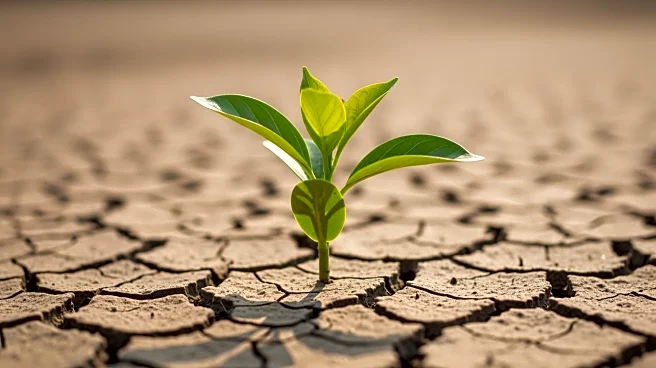What's Happening?
India is facing increasing climate threats, including a significant rise in drought occurrences, intensified heatwaves, and rising sea levels. A recent study indicates that the frequency of droughts in South
Asian countries has increased by 20-80%, exacerbating health and economic challenges, particularly for rural and economically weaker populations. The country is actively working on strengthening its climate-health resilience through initiatives like the Lifestyle for Environment (LiFE) and modernizing weather forecasting systems. Efforts are also being made to promote climate-smart agricultural practices and improve water resource governance to mitigate these challenges.
Why It's Important?
The escalating climate threats in India have far-reaching implications for public health, economic stability, and ecological balance. The increased frequency of droughts and other climate-related events poses a significant risk to agriculture, which is a critical sector for the country's economy and food security. By focusing on climate-smart practices and strengthening resilience, India aims to protect vulnerable populations and ensure sustainable development. These efforts are crucial not only for India but also for global climate adaptation strategies, as they can serve as a model for other countries facing similar challenges.
What's Next?
India plans to continue its efforts in building a climate-smart nation by prioritizing localized adaptation in key sectors such as water, agriculture, and health. Strengthening forecasting systems and ecosystem protection, along with creating green jobs, are vital steps in this direction. The country is also focusing on upgrading flood management systems and protecting Himalayan ecosystems to mitigate the impact of climate change. These initiatives are expected to transform India's climate vulnerability into leadership, securing a sustainable future.
Beyond the Headlines
The focus on climate resilience in India highlights the ethical and cultural dimensions of climate change, emphasizing the need for inclusive and people-centric approaches. By integrating traditional knowledge and promoting sustainable practices, India is not only addressing immediate climate threats but also paving the way for long-term ecological and economic stability.










